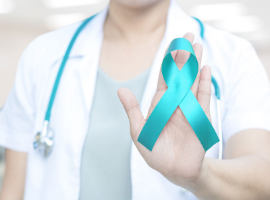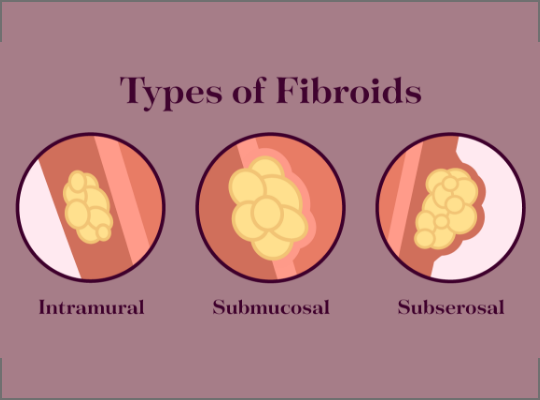Commonly Treated Conditions
Fertility struggles are caused by underlying conditions related to hormones, reproductive organs, and more.
What is PCOS
PCOS, or Polycystic Ovarian Syndrome is an endocrine condition that often causes hormonal imbalances.
Learn MoreWhat is Endometriosis
Endometriosis affects up to 50% of women experiencing infertility. In this condition, the uterine lining, or endometrium, grows outside the uterus.
Learn MoreWhat are Fibroids
Uterine fibroids are commonly occurring non-cancerous muscle growths. They can grow inside or on the uterine wall.
Learn MoreWhat Causes Infertility?
Infertility is a complex condition that has many possible causes. Both men and women can experience infertility. Some common factors that may influence infertility include hormone levels, reproductive organ structures, low sperm count, poor sperm mobility, and infections.
Common Conditions That Affect Fertility
Many conditions affect fertility by lowering your chances of getting pregnant or preventing you from carrying out a healthy pregnancy. These conditions often affect your hormone levels or the structure of your reproductive organs.
Fibroids
Uterine fibroids are noncancerous muscle growths that develop in the uterine lining. It's estimated that up to 80% of women develop uterine fibroids by the time they reach age 50. Although uterine fibroids can go undetected, they do sometimes cause symptoms.
This common condition often goes unnoticed unless it interferes with fertility or women experiencing symptoms such as pelvic pain or abnormal bleeding.
Some common symptoms include long and/or heavy menstrual periods, abdominal pain, constipation, back pain, severe cramps, and pain during sex.
Fibroid treatments depend on your symptoms or how your fibroids are affecting your fertility. Sometimes, fibroids can grow in a way that blocks fallopian tubes, preventing the egg from reaching the uterus. In other cases, the fibroid or fibroids may be large and stop an embryo from attaching to the uterine wall. When uterine fibroids are very large, your doctor may recommend surgery to remove it. In other cases, fibroids don’t affect fertility or pregnancy at all. In fact, many women discover they have fibroids during a prenatal ultrasound.
When fibroids don’t affect fertility or cause symptoms, your doctor may simply choose to monitor them. Fibroids often grow or shrink on their own. One reason your fibroids may change size is due to hormone changes. During pregnancy, fibroids often grow due to high levels of hormones. The opposite occurs during menopause. Fibroids often shrink during this time due to the drop in hormones. If you're experiencing symptoms of fibroids or infertility, ask your doctor about getting an ultrasound to detect fibroids.
Endometriosis
Endometriosis is a condition in which the uterine lining, or endometrium, grows outside the uterus. It is a common condition that affects up to 50% of women who experience infertility. In endometriosis, the uterine lining can grow in the fallopian tubes or ovaries. In these cases, it may stop the egg from leaving the ovaries to be fertilized. Endometriosis can also create scar tissue, making it hard for an embryo to implant.
Many women don’t experience any symptoms of endometriosis. You might only discover that you have it when you experience infertility. However, in other cases, it can cause symptoms like painful periods, painful intercourse, or pain when using the bathroom during your menstruation. Heavy menstrual flow is another symptom.
The only way to accurately diagnose endometriosis is with minimally invasive surgery. Today, laparoscopic surgery can help minimize discomfort while still offering an accurate diagnosis and treatment. Surgery is also a great treatment option that can increase your chances of a successful pregnancy. During endometriosis surgery, your doctor will remove the endometrial tissue.
Other common treatment options for endometriosis include birth control pills and pain relievers. Birth control pills can stop you from having your period and can help relieve symptoms, but medications can only mask symptoms. To get to the root of endometriosis, minimally invasive surgery is the most effective procedure to remove harmful endometrial tissue. If you think you have endometriosis, talk to your doctor about the best treatment options for you.
PCOS
PCOS stands for polycystic ovarian syndrome and is associated with hormonal imbalances. Affecting up to 10% of women during their reproductive years, it is notoriously undiagnosed or misdiagnosed. However, with the right testing and evaluation tools, PCOS can be diagnosed and treated effectively.
Some common symptoms associated with PCOS include acne, weight gain, insulin-resistance, and hyperandrogenism which causes abnormal hair growth on the face or neck. PCOS may also cause anovulation, which means you don’t ovulate. In addition, cyst growth on or near the ovaries is common in women with PCOS. PCOS is often detected when women experience infertility while trying to conceive.
To diagnose PCOS, the doctors at Kofinas Fertility Group perform a number of exams. Usually, blood tests are ordered to test your hormone levels. An ultrasound is also usually performed to observe any ovarian cysts.
Treatment for PCOS depends on the specific type of PCOS you have. Some common treatments include medications like metformin, which can help you become more sensitive to insulin. Lifestyle and diet changes are also important in the treatment of PCOS. Losing weight can often help lessen symptoms and even help you conceive. Your doctor may also prescribe other medications like Clomid, Letrozole, or Gonadotropins. If you think you have PCOS, talk to your doctor about your concerns and discuss your treatment options
Treatments for Common Conditions
Advances in modern medicine means that there are now many effective treatments for common infertility conditions. Ranging from hormone therapy and medications to laparoscopic surgery and IVF, there are many treatments available.
To treat common conditions, doctors typically start with the simplest, least invasive treatment options. If necessary, you try progressively complex therapies to achieve pregnancy.
Treatments for common conditions depend on the diagnosis and unique situation of the person experiencing infertility. PCOS, for example, may be treated first with diet and lifestyle changes. Some women with PCOS also experience insulin resistance. In these cases, medications commonly used for the treatment of diabetes may help. Yet, for other women with PCOS, ovulation is the main concern. In this case, hormone therapy can help the body ovulate normally. For the best chances of conception, your doctor may recommend intrauterine insemination along with ovulation stimulation. When ovulation isn’t possible, other therapies such as IVF can help women with PCOS to conceive.
Endometriosis is another common cause of infertility in women. Treatment options for this condition also vary depending on the severity of the condition. Sometimes, women can achieve a natural pregnancy after laparoscopic surgery to remove endometrial tissue. In other cases, IVF may be used to assist pregnancy.
Your treatment for infertility will depend on your unique situation and needs. If you’re looking for an experienced fertility clinic to offer you the best chance at pregnancy, contact Kofinas Fertility Group.
Results that Speak for Themselves

Understanding Fertility
Infertility is a common issue—one that can be a difficult journey to embark on if you and your partner aren’t sure where to start.
Read the GuideResources to Help Your Fertility Journey
Knowing where to start can be a challenge. Here are a few popular articles to help
you stay informed about fertility and your options when it comes to treatment.

PCOS Symptoms Quiz
Take the Quiz
Fertility Assessment
Take the Quiz
Video: Do Fibroids Affect Fertility?
Watch Now